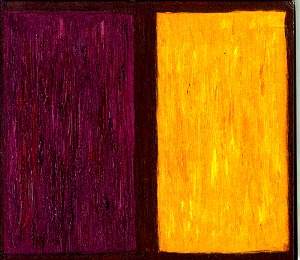1. Can she excuse
2. Away with these Self-loving Lads
3. Peter’s Pleasure
4. Fain would I change
5. All ye who Love or Fortune
6. Humorous Pavin
7. What Greater Grief
8. Forlorn Hope Fancy
9. My Hope is Decayed
10. Tobacco
11. Dear if you change
12. Polish Ayre
13. Polish Villanelle
14. Come Heavy Sleep
15. If my Complaints
16. Captain Digorie Piper's Galliard
17. A Soldier's Galliard
18. Think'st thou then
19. His Golden Locks
20. The Spirit of Gambo
21. Resolution |
Dowland
Dowland
Hume
Hume
Dowland
Hume
Hume
Dowland
Hume
Hume
Dowland
Hume
Hume
Dowland
Dowland
Dowland
Hume
Dowland
Dowland
Hume
Dowland |
This disc, featuring the works of two of England's
finest composers, is very strange. Its title, Dowland v Hume makes it
sound like a contest, yet it is nothing like that. It is an interesting
selection of works by these two excellent composers. Then there is the
program itself, which attempts to make a coherent presentation of the
composers' music, but which goes in fits and starts. (And the program
list above is not exactly the same as on the disc: the third track is
Fain would I change, not the fourth; one should assume that is Peter's
pleasure.) The disc itself has some problems, at least the copy I received
- there are a couple of clicks at the end of the fourth track, and the
recording is, at times, very hollow and distant.
Tobias Hume and John Dowland are two of my favorite
English composers, and Hume's viol music is probably the finest for
this instrument. Dowland's songs have long been considered the apex
of Elizabethan songs, so the combination could work well. Alas, it doesn't.
Tenor Simon Biazeck doesn't cut muster - he sounds, at times, as if
here were sight-singing these songs for the first time. His vibrato
is annoying at best, and at times sound like he's singing a different
song. When he sings some of the Hume songs with viol accompaniment,
I could only skip to the next track…
Miriam Morris' viol playing is good, but nothing more;
the viol sounds as though it was recorded in a bathroom; its tones are
all flat and hollow. The solo lute pieces by Elizabeth Kenny suffer
from too much background noise (could those sounds really be breathing?),
and too much reverb.
There is little good to be said about this disc. If
you want to discover the great music of these two composers, look for
Jordi Savall's landmark recording of Hume's viol music, Paul O'Dette's
excellent set of Dowland's lute works, and one of the many fine recordings
of Dowland's songs, such as that by Paul Agnew.
Kirk McElhearn

![]() Simon Biazeck
- Tenor
Simon Biazeck
- Tenor ![]() ZENOBIA ZEN403
[63.17]
ZENOBIA ZEN403
[63.17]